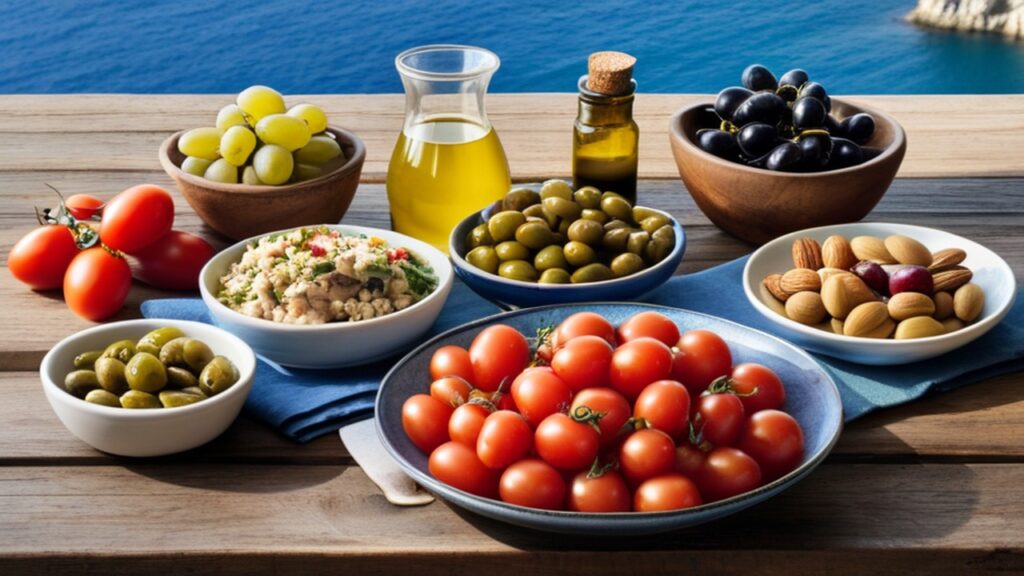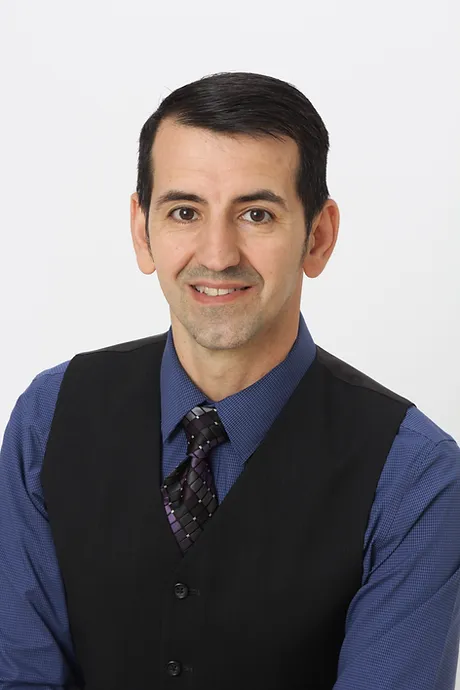“Having a positive mindset is crucial for successful weight loss. Focusing on the result and visualizing the desired outcomes can keep us motivated and committed to our weight loss goals. On the other hand, constantly focusing on obstacles and setbacks can hinder progress.” – Stavros
I had the pleasure of interviewing Stavros Mastrogiannis, an expert in Mediterranean health and wellness. With a wealth of knowledge accumulated over years of research and experience, Stavros has developed a deep understanding of the Mediterranean diet and its impact on overall well-being. In this interview, Stavros shares fascinating insights into the traditional Mediterranean lifestyle, including the importance of mindful eating, the benefits of skipping breakfast, and the power of a positive mindset in achieving lasting weight loss. Join us as we delve into Stavros’s journey and uncover the secrets to a healthy and fulfilling life.
Thank you so much for joining us, Stavros! Our readers would love to get to know you a bit better. Please tell us a bit about your backstory.
I have been involved in the fitness industry for over 30 years now. My approach to weight loss focuses on providing a sustainable and practical method to transform people’s lives. Growing up in Greece, I was inspired by my childhood experiences, which led me to develop The Stavros Method. This method is backed by cognitive neuroscience and aims to help individuals change routine behaviors for long-term success.
In my years in the weight loss industry, I have learned the importance of teaching individuals how to make healthy eating habitual rather than just following temporary diets. My program, Live Your Way Thin, follows the Kaizen approach, highlighting the significance of making small, incremental changes to achieve lasting weight loss.
Observing the lifestyle of individuals on the Greek island, where people lived well into their 90s while being thin, healthy, and productive, I learned the Five Ancient Secrets. These secrets provide unique insights into healthy living and have greatly influenced my approach to fitness and wellness.
While there may not be extensive information available about my backstory, my dedication to helping others achieve sustainable weight loss through practical methods and my vast experience in the fitness industry have shaped my reputation as a trustworthy figure in the field.
The Mediterranean diet is often touted as one of the healthiest. What comes to mind when you think of it?
When most people think of the Mediterranean diet, they focus on the foods eaten and avoided. However, other important aspects are often overlooked. For example, Mediterranean cultures generally don’t eat breakfast, which hardly ever gets mentioned.
That’s interesting. Can you tell us more about this?
Sure. Growing up on a Greek island, I experienced the Mediterranean diet firsthand. In our culture, it was common for children and adults to skip breakfast. Even as kids, my parents never forced us to eat in the morning. Adults often have Greek coffee, like espresso, and wait until lunchtime for their first meal. This practice of skipping breakfast has several benefits for our health.
What are some of these benefits?
Skipping breakfast for at least 16 hours makes the body more efficient at burning fat. It also increases insulin sensitivity, which helps prevent diabetes. Additionally, it enhances leptin sensitivity, the hormone responsible for signaling fullness, making it easier to feel satisfied with smaller portions. Skipping breakfast also triggers a process called autophagy, where the body eliminates mutated and dysfunctional cells that can lead to cancer and mental diseases. These factors contribute to the overall health of Mediterranean cultures.

That’s fascinating. So, the Mediterranean diet is not just about the food itself but also about how and when it is eaten. Are there any other important aspects of it?
Absolutely. How we eat is just as important as what we eat. We have a three-hour lunch break in Greece, allowing us to eat slowly and mindfully. This mindful eating leads to consuming less food naturally. Contrastingly, many people in other cultures have short lunch breaks and rush through their meals. Mindless eating and eating under stress can have adverse effects on health. We also enjoy our food without guilt, even if it’s considered “junk food.” This positive mindset makes a difference in how food affects our bodies. Lastly, in the Mediterranean, we are taught to eat only when truly hungry rather than out of habit or convenience. This ensures that we enjoy the whole experience of a meal and prevent overeating.
Mindset is a powerful tool for achieving long-term health and weight loss success. It’s essential to nurture a positive mindset, focus on the end goal, and develop strategies to overcome obstacles.
How does the way we look at things affect our health?
How we perceive and think about our health directly impacts our physical and mental well-being. A negative mindset can increase stress levels, hinder motivation, and make adopting and maintaining healthy habits difficult.
Can eating a healthy diet still ruin our health?
Yes, it’s possible. If eating healthy causes excessive stress and becomes a burden, it can have negative consequences on our overall health. It’s better to have a balanced, enjoyable, sustainable diet than a strict, stressful diet.
How does mindset affect weight loss?
Having a positive mindset is crucial for successful weight loss. Focusing on the result and visualizing the desired outcomes can keep us motivated and committed to our weight loss goals. On the other hand, constantly focusing on obstacles and setbacks can hinder progress.
How can we change our mindset?
Changing our mindset requires conscious effort and practice. Some strategies to shift our mindset include:
- Reframing negative thoughts into positive ones.
- Setting realistic goals.
- Celebrating small wins.
- Surrounding ourselves with supportive people.
- Practicing mindfulness or meditation to enhance self-awareness.
How can focusing on the positive effects of weight loss help motivation?
When we think about the positive changes that weight loss can bring, such as improved health, increased energy, and enhanced self-confidence, it can serve as strong motivation to stay on track with healthy habits. Visualizing the future impact on our appearance and well-being can help fuel our determination.

How does eliminating animal products from my diet improve my health?
Eliminating animal products from your diet can improve your health by reducing the intake of saturated fats and cholesterol, increasing the intake of fiber, vitamins, and minerals, and reducing the risk of chronic diseases such as heart disease, diabetes, and certain types of cancer.
Is it possible to get enough protein on a plant-based diet?
Yes, it is possible to get enough protein on a plant-based diet. Plant-based protein sources include legumes, tofu, tempeh, seitan, quinoa, and other grains. You can meet your daily protein requirements by including various protein sources.
What are some alternative sources of calcium on a plant-based diet?
Some alternative sources of calcium on a plant-based diet include fortified plant-based milk (such as almond, soy, or rice milk), calcium-set tofu, fortified orange juice, leafy green vegetables (such as kale and broccoli), and sesame seeds.
How can I maintain a balanced diet while eliminating animal products?
To maintain a balanced diet while eliminating animal products, it’s essential to include a variety of plant-based foods such as fruits, vegetables, whole grains, legumes, nuts, and seeds. You should also pay attention to your nutrient intake and ensure you’re getting enough protein, iron, calcium, vitamin B12, and omega-3 fatty acids. Consulting with a registered dietitian can also help create a personalized plan.
Are there any health risks associated with a plant-based diet?
A well-planned plant-based diet is generally considered safe and healthy for most people. However, it’s important to ensure you get all the essential nutrients, particularly vitamin B12, primarily found in animal products. Certain nutrients may also need to be supplemented to meet your dietary needs.
Can a plant-based diet help with weight loss?
Yes, a plant-based diet can be effective for weight loss because it focuses on whole, unprocessed foods that are naturally low in calories. Additionally, plant-based diets are typically higher in fiber, which promotes feelings of fullness and can help control appetite.
Can a plant-based diet provide enough energy for physical activity?
Yes, a well-planned plant-based diet can provide enough energy for physical activity. Consuming enough calories from whole grains, legumes, nuts, and seeds is essential to fuel your body’s needs. Monitoring nutrient intake and consulting with a dietitian help you meet your energy needs.
The Mediterranean diet encompasses more than just food choices. Changing the way we view hunger and being mindful about eating can significantly impact our overall health. Thank you, Stavos, for shedding light on the true Mediterranean diet.
How can our readers follow you on social media?
To follow me on social media, visit Facebook, Instagram, Twitter, or LinkedIn.

This was very inspiring. Thank you so much for joining us!


